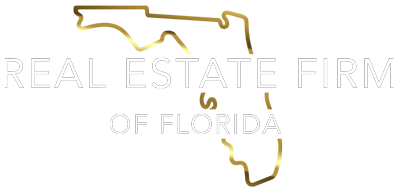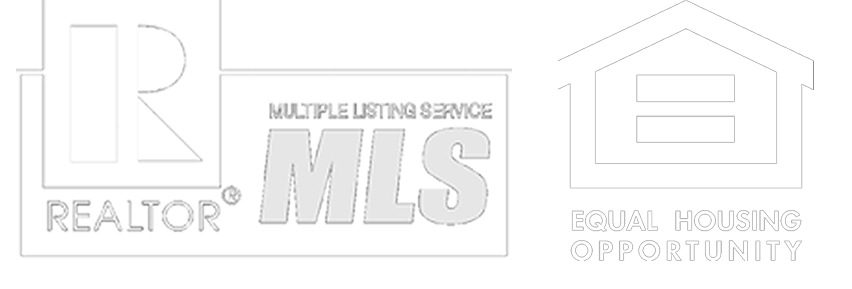The Pros and Cons of Different Mortgage Types

When you’re in the market for a new home in Tampa Bay, choosing the right mortgage type is a crucial decision that can significantly impact your financial future. Understanding the various mortgage options available, along with their pros and cons, can help you make an informed choice that suits your needs and goals. This guide is designed to walk you through the most common types of mortgages, highlighting their advantages and disadvantages in detail.
The Pros and Cons of Different Mortgage Types
This guide covers:
- Fixed-rate mortgages
- Adjustable-rate mortgages (ARMs)
- FHA loans
- VA loans
- USDA loans
- Jumbo loans
Here’s a closer look at each.
Fixed-Rate Mortgages
Fixed-rate mortgages are one of the most popular choices for homebuyers, primarily due to their stability and predictability. The main advantage of a fixed-rate mortgage is that the interest rate remains constant throughout the life of the loan, ensuring that your monthly payments stay the same. This consistency makes budgeting easier and shields you from future interest rate hikes. However, the trade-off is that fixed-rate mortgages often start with higher interest rates compared to adjustable-rate mortgages. Additionally, if market rates fall, you won’t benefit from the decrease unless you refinance, which involves extra costs and effort.
Adjustable-Rate Mortgages (ARMs)
Adjustable-rate mortgages offer a lower initial interest rate, which can be attractive, especially for buyers who plan to own their home for a shorter period. The initial lower rate can make homeownership more affordable in the short term. However, the rate is not fixed and can increase over time based on market conditions. This means your monthly payments could rise, sometimes significantly, which adds an element of uncertainty. ARMs can be more complex than fixed-rate mortgages, with various terms and conditions that might be confusing for some buyers.
FHA Loans
FHA loans, backed by the Federal Housing Administration, are particularly beneficial for buyers who might not qualify for a conventional mortgage. They typically require lower down payments, sometimes as low as 3.5%, and are more accessible to buyers with lower credit scores. However, borrowers must pay for mortgage insurance, which adds to the overall cost of the loan. Additionally, FHA loans have limits on how much you can borrow, which might restrict your buying options in certain markets.
VA Loans
VA loans are an excellent option for veterans and active military personnel, offering unique benefits like no down payment requirements and no need for mortgage insurance. This can significantly reduce upfront and ongoing costs. However, VA loans are only available to a specific group, limiting their accessibility. There’s also a VA funding fee, which can be rolled into the loan but does add to the overall loan amount.
USDA Loans
USDA loans are ideal for buyers looking to purchase in rural and certain suburban areas. Like VA loans, they often require no down payment and typically offer lower interest rates compared to conventional mortgages. However, they come with geographic restrictions and income limits, which can limit eligibility for many buyers.
Jumbo Loans
Jumbo loans are meant for properties that exceed the conventional loan limits. They allow borrowers to finance more expensive properties, often with competitive interest rates. However, these loans usually require stronger credit scores, lower debt-to-income ratios, and larger down payments, often around 20% or more, making them less accessible for the average buyer.
 $475,000
Pending
$475,000
Pending
8410 Flagstone Drive Tampa, Florida
4 Beds 2 Baths 1,826 SqFt 0.220 Acres
 $159,900
Active
$159,900
Active
4211 Chatham Oak Court 104 Tampa, Florida
1 Beds 1 Baths 593 SqFt 0.010 Acres
 $1,350,000
Active
$1,350,000
Active
3435 Bayshore Boulevard 1801S Tampa, Florida
2 Beds 3 Baths 2,442 SqFt
 $699,999
Active
$699,999
Active
3601 W Oklahoma Avenue Tampa, Florida
3 Beds 3 Baths 1,448 SqFt 0.140 Acres
FAQ About Different Mortgage Types
Here are some frequently asked questions about different mortgage types. If you don’t see the answers you’re looking for here, please call our office. We’re here to help.
What Should I Consider When Choosing Between a Fixed-Rate and an Adjustable-Rate Mortgage?
When deciding between a fixed-rate and an adjustable-rate mortgage, consider your long-term housing plans and financial stability. If you plan to stay in your home for many years and prefer consistent monthly payments, a fixed-rate mortgage might be more suitable. However, if you anticipate moving or refinancing within a few years, an ARM with a lower initial rate could be more cost-effective.
Are FHA Loans Only for First-Time Homebuyers?
Contrary to popular belief, FHA loans are not exclusively for first-time homebuyers. They are indeed popular among first-timers due to their lower down payment and credit requirements, but they are available to all eligible borrowers, regardless of whether it’s their first home purchase.
How Do VA Loan Interest Rates Compare to Traditional Mortgages?
VA loan interest rates are often competitive with, and in some cases, lower than traditional mortgage rates. The absence of mortgage insurance with VA loans can also make them a more affordable option in the long run, especially when combined with the no down payment benefit.
Can I Qualify for a USDA Loan If I’m Buying a Home in a Suburban Area?
USDA loans are designed to promote homeownership in rural and some suburban areas. While many suburban areas are ineligible, there are exceptions. The USDA provides an online tool to check the eligibility of specific areas, so it’s worth exploring if your preferred location might qualify.
Do Jumbo Loans Always Require a 20% Down Payment?
While it’s common for jumbo loans to require larger down payments, often around 20%, this is not always the case. Some lenders offer jumbo loans with smaller down payments, but these typically come with stricter credit and income requirements.
TODAY’S NEWEST HOMES FOR SALE IN TAMPA BAY
 $475,000
Pending
$475,000
Pending
8410 Flagstone Drive Tampa, Florida
4 Beds 2 Baths 1,826 SqFt 0.220 Acres
 $159,900
Active
$159,900
Active
4211 Chatham Oak Court 104 Tampa, Florida
1 Beds 1 Baths 593 SqFt 0.010 Acres
 $1,350,000
Active
$1,350,000
Active
3435 Bayshore Boulevard 1801S Tampa, Florida
2 Beds 3 Baths 2,442 SqFt
 $699,999
Active
$699,999
Active
3601 W Oklahoma Avenue Tampa, Florida
3 Beds 3 Baths 1,448 SqFt 0.140 Acres
Are You Buying or Selling a Home in Tampa Bay?
You can use this website to search homes for sale in Tampa Bay and all its communities. Our site is directly connected to the Tampa Bay MLS, and we update our listings every hour. You can even use our site to create your own account and get emails as soon as a new home hits the market, price change alerts and so much more.
While you’re here, check out these listings:
Join our team
Please fill out the below form completely and include your resume & cover letter and we will get back to you quickly!












